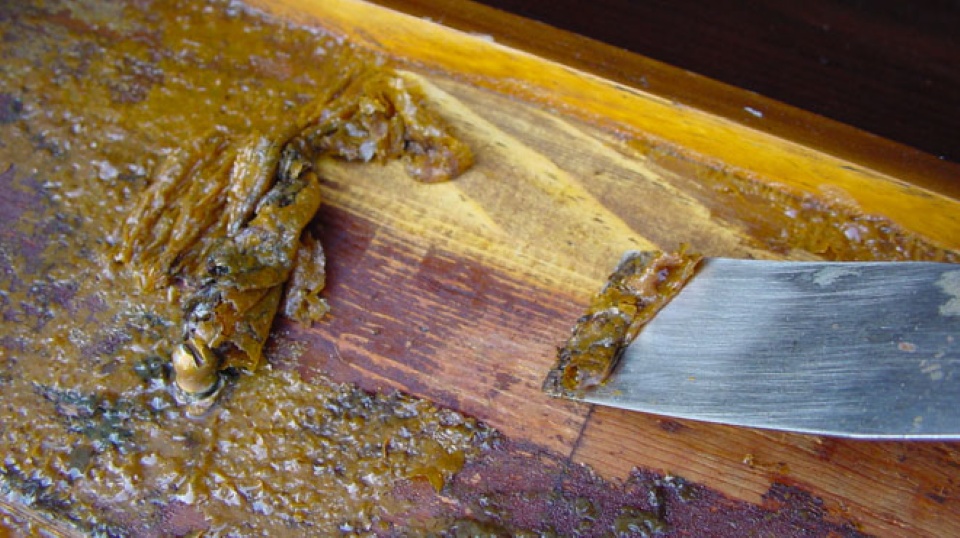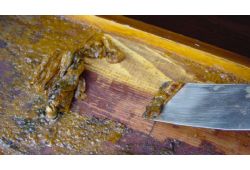When it comes to removing old paint, paint strippers are fast acting, versatile and easy to use. Compared to sanding (which creates a lot of dust), paint strippers are one of the best and least harmful ways to remove lead-based paint. But paint strippers contain chemicals that can harm your health if not used properly.
Read the product label carefully before each use and follow all safety instructions.Important!
If you develop breathing problems, dizziness, nausea or headaches while working with paint strippers, get some fresh air right away. Better yet, work for ten minutes at a time and then take a fresh air break.Health risks
Methylene chloride (also known as dichloromethane) is a chemical in paint strippers that is harmful to human health. When exposed over a long period of time to high levels of this chemical, lab animals developed cancer. Scientists believe that prolonged exposure could cause cancer in humans as well.
Methylene chloride is clear, colourless and has a mildly sweet smell. It can cause irritation if it gets on your skin. Breathing in the vapours over short periods can cause sluggishness, irritability, light-headedness, nausea and headaches.
Safety tips
- Read the label. Read and follow all safety instructions on the product label.
- Work outside. Using paint strippers indoors will contaminate the air, putting people inside at risk. Move the object you are stripping outdoors if possible.
- Keep fumes from spreading. If working inside, turn your furnace fan off before starting. Tape over your air supply and return registers.
- Ventilate. Make sure your work area is well ventilated. Open windows in the room where you are working. Place an electric fan by an open window to blow the fumes outside.
- Protect yourself. Always wear goggles, gloves and protective clothing. If you are removing lead-based paint, find a pair of coveralls and work shoes to wear only in the work area and wash all work clothes separately from other clothing.
- Wear a mask. Wear a good quality breathing mask made for use with organic chemicals. These can be bought at a paint store or safety equipment outlet.
- Wash it off. If you get paint stripper on your skin or in your eyes, wash it off right away.
- Don't eat or drink. Keep food and drinks away from your work area.
- Don't light up. Keep anything that might cause a spark or static electricity out of your work area, including cigarettes.
- Get help. Consider hiring a professional if you do not want to be exposed to the hazards of paint strippers.
- Read up. See Health Canada's fact sheet Lead-based Paint and booklet Lead in Your Home before starting any renovation project in an older home.

 In The Latest Issue:
In The Latest Issue:


 BY:
BY: 

Tweet
Share